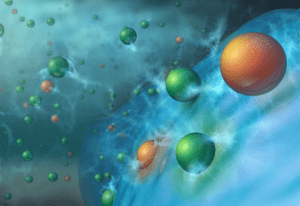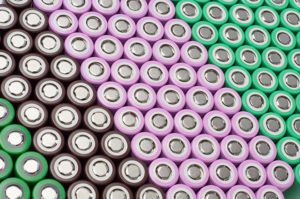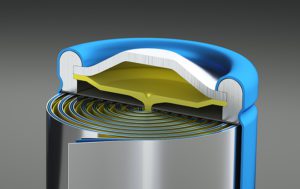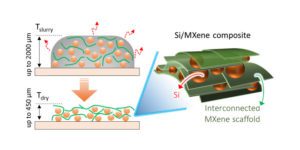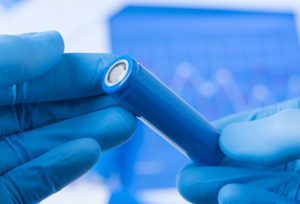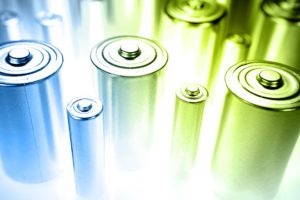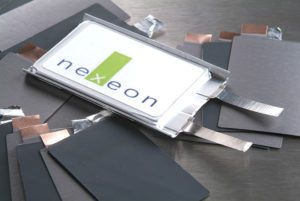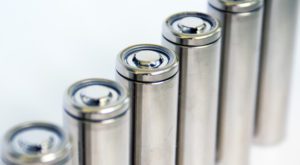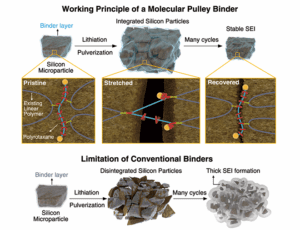Researchers at the DOE’s Argonne National Laboratory have developed a new electrolyte mixture and a simple additive that could have a place in the next generation of lithium-ion batteries that feature silicon anodes. The report findings were published in July in the journal ACS Applied Materials & Interfaces. Scientists have long seen the silicon anode… Read more »
Search Results Found For: "silicon anode"
Wacker Chemie acquires stake in silicon anode specialist Nexeon
Munich-based chemical company Wacker Chemie has acquired a 25% stake in Nexeon, a UK company that develops, produces and sells silicon-based anode materials that can enhance the performance of lithium-ion batteries. Wacker has conducted research in this area since 2010 and cooperated with Nexeon previously in 2013. The companies have agreed not to disclose the… Read more »
Wildcat Discovery Technologies receives second patent for silicon anode electrolytes
Wildcat Discovery Technologies, a company that uses high-throughput methods to develop next-generation battery materials, has received a second patent on its development of electrolytes for silicon anode batteries. Wildcat’s first patent for this work was awarded in late 2018 and covered the use of sulfolane-based electrolytes. This new patent covers acrylate-based additives which can be… Read more »
Researchers add MXene to silicon anodes, improving charge life
Researchers at Drexel University and Trinity College have found that using silicon fortified with a special type of materials called MXene in Li-ion anodes could improve charge-to-charge life of batteries. The group reports in Nature Communications that the latest Li-ion batteries on the market are likely to extend the charge-to-charge life of phones and EVs… Read more »
NanoGraf’s graphene-wrapped silicon anode is designed to boost both energy and power density
SiNode Systems, a Chicago-based materials developer, and JNC, a Tokyo-based specialty chemical manufacturer, have announced the formation of NanoGraf, a joint venture focused on commercializing materials for the Li-ion battery industry. Via the new JV, NanoGraf will gain production facilities in Japan, expanded global distribution channels, over 50 patents, and two research facilities. NanoGraf’s technology… Read more »
Wildcat Discovery granted patent for Li-ion electrolytes that improve performance of silicon anodes
Wildcat Discovery, a battery research company based in San Diego, has been granted a patent for the use of sulfolane-based electrolytes designed to improve the performance of Li-ion batteries containing silicon anodes. In 2013, the company was awarded a grant by the DOE’s Office of Energy Efficiency and Renewable Energy to develop new non-carbonate-based electrolytes… Read more »
Nexeon and partners win £7 million in funding to develop silicon anode tech
Silicon anode specialist Nexeon, along with a couple of partners, has been awarded £7 million in Innovate UK funding for the SUNRISE project, which will develop battery materials based on silicon as a replacement for carbon in the cell anode Nexeon will lead the silicon material development and scale-up stages of the project, while polymer… Read more »
US Army partners with Brown University to study SEI on silicon anodes
The US Army Research Laboratory (ARL) and Brown University researchers have teamed up to study the solid electrolyte interphase (SEI) layer that forms on the anodes of lithium-ion batteries, with particular emphasis on experimental silicon anodes. The Army is working to replace its alkaline and nickel-metal hydride field batteries with Li-ion batteries. “The Army is… Read more »
Molecular pulley leads to silicon anode breakthrough
Silicon anodes are receiving a great deal of attention, as they can enable batteries to deliver 3-5 times higher capacities compared with current graphite anodes. Although silicon is abundant and cheap, Si anodes have a limited number of charge-discharge cycles – typically less than 100 times. Their volume expands enormously during each cycle, leading to… Read more »
Researchers make a major advance in silicon anodes
Current electrode materials such as graphite are able to stably adsorb only a limited number of lithium ions, an inconvenient truth that restricts capacity. That’s why researchers around the world are investigating semiconductor materials such as silicon as alternative electrodes. Bulk silicon is able to accommodate enormous quantities of lithium, but the migration of the… Read more »




